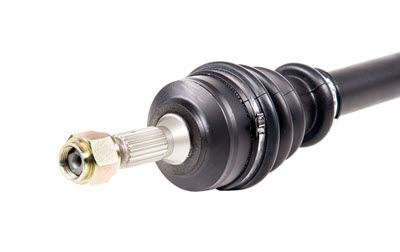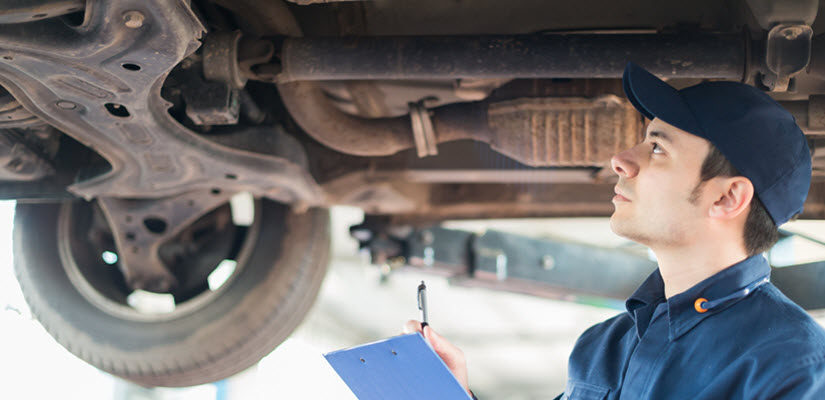How to Know When to Replace Your Car’s Drive-Axle Boots
By Bavarian Performance Specialists March 20, 2018
Your car has many components that all serve various important functions. Whether you drive an imported luxury vehicle or a pickup truck, your car requires constant care and attention in order to run properly at all times. A part of vehicle maintenance that often goes overlooked is the need for routine overall vehicle inspections. This can help you detect when there could be an issue with one of the components of your car before it affects your vehicle’s performance, potentially leaving you without a reliable mode of transportation.
Your car’s drive-axle boots, or CV boots, serve a seemingly insignificant role in your vehicle’s overall functioning. However, when the CV boot begins to malfunction or becomes too worn-out, it can greatly affect your car’s performance. Furthermore, it can affect other parts of your car, leading to costly repair work and more replacement parts than you bargained for. Here is a little more information about what a drive-axle boot is, the common symptoms associated with failure, and what you can do to prevent issues moving forward.
What does a drive-axle boot do for your car?
In order to properly diagnose a CV boot issue, it first helps to know a little bit about the system the CV boot is involved in. CV stands for constant velocity, referring to the axle on your vehicle that provides power to the wheels from the transmission, allowing it to move at a constant rate or speed. Since this part plays a critical role in suspension movement, it’s important that various pieces of the axle are pliable, including the CV joint—this way they can bend and maneuver as the car does to avoid snapping or breaking critical parts. The CV boot, or drive-axle boot, is what protects the CV joint from becoming too dirty or debris-filled to function properly. Since the CV joint is greased to allow for optimal movement, if the CV boot isn’t doing it’s job then the joint will attract all kinds of dirt and filth, eventually rendering the axle unusable. Therefore, despite the part seeming unimportant to many drivers, its role is critical to the vehicle’s functionality.
The common symptoms associated with failure you should look for
Just as with any other automobile issue, it’s important to know what to look for when parts begin to fail or malfunction. The CV boot might display particular symptoms that you can keep your eyes out for, allowing you to jump on the problem before it worsens or causes the CV joint to fail as well. However, once the CV boot fails, it might be inevitable that you’ll have to replace the joint also.
Intense vibration
If you notice a rattling noise or vibration coming from what seems like your suspension components, the problem could be related to a contaminated CV joint. Once the drive-axle boot fails, it allows for dust, dirt, debris, and water to seep into the joint, causing internal damage. This often results in a sensed vibration by the driver.
Noises while turning your wheels
Along with intense vibrating, you may also experience noises coming from the axle. Rattling or clicking sounds are typical of a damaged CV joint resulting from a worn or failed CV boot. The joint should most likely be replaced as soon as possible.
Suspicious leaking coming from CV boots
Since the CV boot keeps the lubrication within the CV joint intact, when the boot fails it’s quite common that automotive technicians will notice grease on the under side of the car or within the wheel itself. The boot will need to be replaced, and depending on the condition of the CV joint, it may also need to be replaced.
How we can help
Simply put, we are Bavarian Performance Specialists, serving  German-brand vehicles in the areas of Thousand Oaks, Agoura Hills, Westlake, Malibu, and Newbury Park, CA. Having worked in the field since 1983, over time we have acquired a breadth of knowledge and experience working with German cars, such as MINI, BMW, Mercedes, Porsche, Volkswagen, and Audi. CV boot issues amongst these cars, as well as any other road-traveling vehicle is not out of the ordinary—in fact, it’s quite a simple repair process. Please call us directly to schedule an inspection if you notice any of the aforementioned symptoms in your German import.
German-brand vehicles in the areas of Thousand Oaks, Agoura Hills, Westlake, Malibu, and Newbury Park, CA. Having worked in the field since 1983, over time we have acquired a breadth of knowledge and experience working with German cars, such as MINI, BMW, Mercedes, Porsche, Volkswagen, and Audi. CV boot issues amongst these cars, as well as any other road-traveling vehicle is not out of the ordinary—in fact, it’s quite a simple repair process. Please call us directly to schedule an inspection if you notice any of the aforementioned symptoms in your German import.





